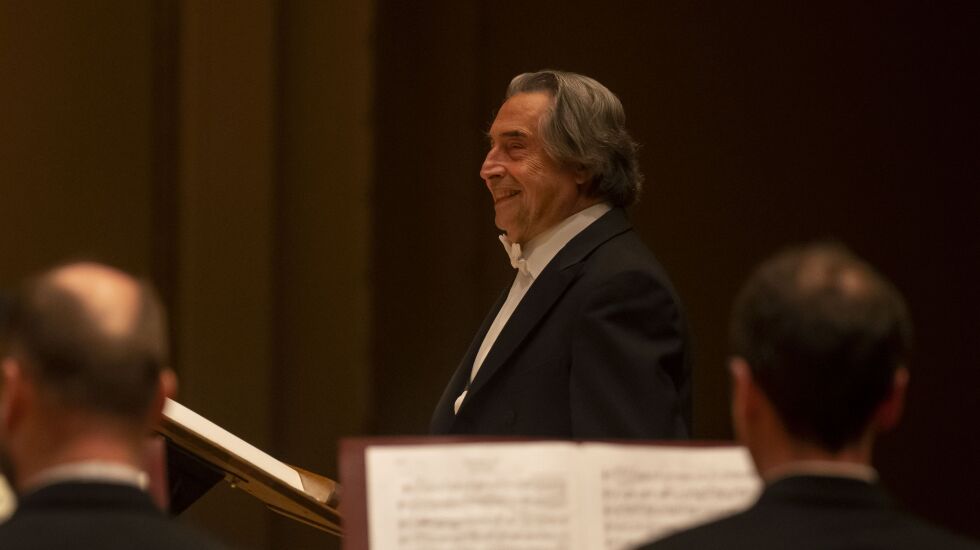
After all, the famed Italian conductor hadn’t even conducted the orchestra since 1975. And despite flirting with a possible union with the New York Philharmonic, Muti had made more than one seemingly firm statement that he was not interested in becoming music director again of an American orchestra.
But the leaders of the CSO were undeterred. They brought him to Chicago in the fall of 2007 for two weeks of concerts in Orchestra Hall followed by a two-week trek across Europe. Anybody who attended those concerts could sense the instant connection between maestro and musicians, and by the following May, he was named the orchestra’s new music director.

“From the first moment,” Muti said, “I thought there was something special between me and [the orchestra], like they were waiting for me. And they didn’t know me because the last time had been 32 years before, but it was a chemistry.”
His directorship began in 2010, and despite some health concerns at the beginning, it was extended several times, including an extra year to make up for lost time during the pandemic. He will culminate what by almost any measure has been a highly successful tenure on June 27 with a free community concert at the Pritzker Pavilion in Millennium Park.
“It has been 13 years of wonderful collaboration musically and as friends,” Muti said during a recent chat in his studio on the lower level of Orchestra Hall that is decorated with memorabilia, including the two Grammy Awards he won with the orchestra for his recording of Verdi’s “Requiem” in 2010. But he made it clear that while he is leaving his post, he is not saying goodbye.
Muti is already booked for six weeks with the orchestra in 2023-24, including the two opening sets of concerts, appearances at Carnegie Hall, and a three-week European tour, and another six weeks in 2024-25.
“Our intent, which thankfully he agrees with, is that he’ll continue to be with us until he can no longer conduct,” said Jeff Alexander, president of the Chicago Symphony Orchestra Association.
It also seems inevitable that the orchestra will bestow a title on Muti along the lines of music director emeritus, an expectation that Alexander all but acknowledged by saying kiddingly, “Watch this space.”
Alexander confirmed that a music director search committee, consisting of musicians and members of the CSO’s board and administration began meeting a few weeks before the pandemic started, and it has been “very, very active” in the past couple of years. But there is no timeline for appointing Muti’s successor.
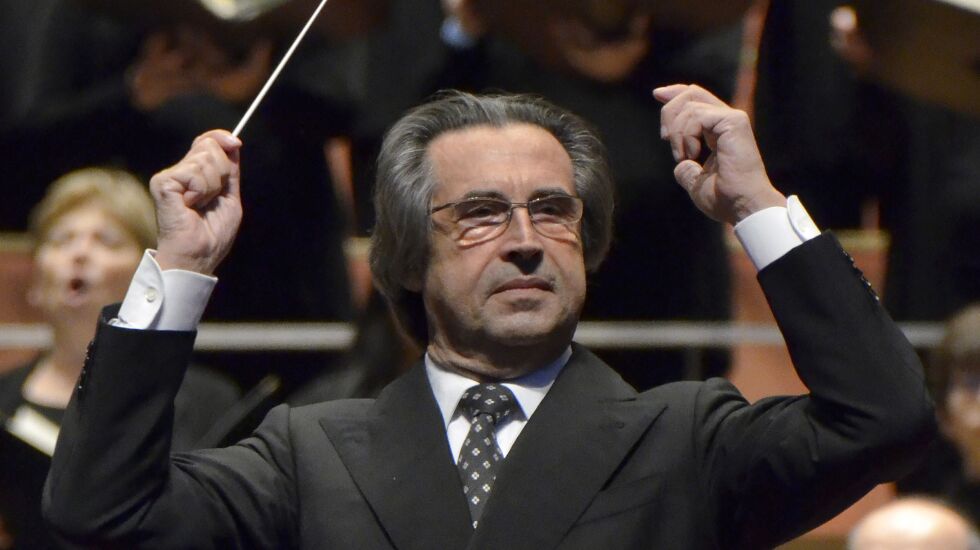
“We just want to make certain we select the best person for the position,” Alexander said. “We’re not in a rush to do that. Better to get it right than to do it early.”
When the orchestra hired Muti in 2008, it landed what the New York Times called one of the “last lions of podium glamour,” a conductor with a superb pedigree and links back to a golden age of classical music when titans like pianist Sviatoslav Richter, violinist Yehudi Menuhin and soprano Renata Scotto reigned.
By the time Muti came to the CSO, he was 69 years old and had already enjoyed a spectacular career that included leading the Vienna Philharmonic every year since 1971 and serving as music director of the Philadelphia Orchestra in 1980-92 and La Scala, Milan’s famed opera house, in 1986-2005.
“He is just one of a very, very few true masters of the orchestra, of conducting, of music, in every respect — all that involves,” said John Sharp, the CSO’s principal cellist who has played under three music directors. He believes the CSO was “unbelievably fortunate” to be able to hire Muti. “The heavens above were smiling on us,” he said.
“Of course, I will come back because I love this orchestra. I believe this is the best American orchestra, without any doubt.” — Riccardo Muti
One of the most obvious changes to the orchestra under Muti’s tenure has been the hiring of 27 new musicians, whom the conductor described as “young, fantastic players.” He pointed in particular to the remaking of the woodwind section, including the appointment of principal oboist William Welter in 2018 and principal bassoonist Keith Buncke in 2015.
When Muti arrived, the internationally renowned brass section had long predominated, and he believes there is a better balance now, with the other sections drawing equal attention.
“I think, now, around the world, they still recognize the quality of the brass, but they now also recognize the quality of the strings,” he said.
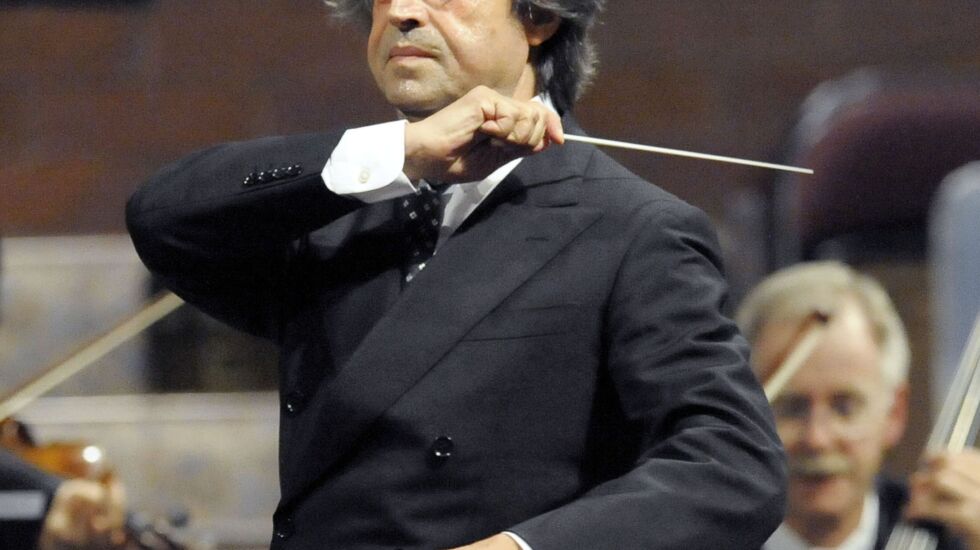
At the same time, the orchestra’s sound has become more refined and has what Muti calls a “singing quality” or what Sharp termed a “vocal approach.” This emerged in part from Muti’s unusual concert presentation of six complete operas, including Verdi’s “Un ballo in maschera” in June 2022, and the complete symphonies of Schubert, whom Muti called a “singing composer,” across the 2011-12 and 2013-14 seasons.
For the most part, Muti did not attempt any of the experimental initiatives that some other conductors, including Esa-Pekka Salonen or Alan Gilbert, have undertaken elsewhere in recent years, like themed festivals and unexpected, alternative venues.
And his programming could not exactly be called adventuresome, but he did consistently resurrect forgotten gems from the past. And though not known for contemporary music, he appointed six American composers-in-residence during his tenure, including the current one, Jessie Montgomery, and he will have led 16 world premieres by the time he steps down.
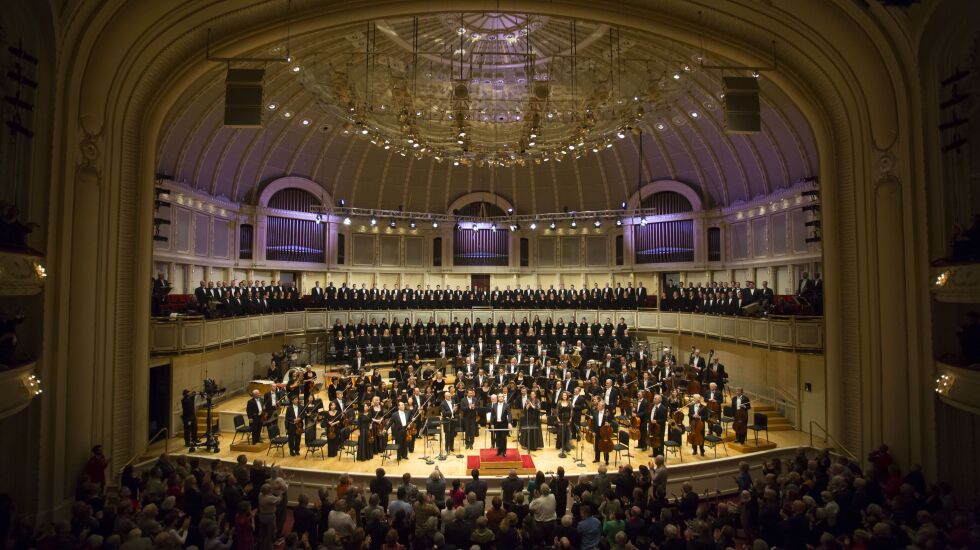
“In this respect, I feel I have given a service to this country,” Muti said. “As a European, of a certain age, I could have said, I do Beethoven, Scriabin, Mahler and Bruckner. Let the young American conductors do this. It’s their job. It’s their country. But I did a lot of it and with great care.”
That said, Muti made his biggest impact in the standard repertoire, including performances of all nine of the Beethoven symphonies — what Sharp described as some of the most fulfilling interpretations of those works he has ever been part of. A 2015 performance of the composer’s famed Ninth Symphony has had nearly 44 million views on YouTube, a statistic Muti was quick to cite.
Although Muti can be tough in rehearsals, he tries to keep the mood “legero” or “light,” and he is always quick with a dash of humor, which can also be heard in his remarks during concerts. There has been none of the friction that sometimes develops between conductors and musicians.
“These 13 years with the Chicago Symphony have really been a musical joy for me,” Muti said. “They respect me, and I respect them.”
He made clear that respect in March 2019 when the CSO musicians went on strike for seven weeks. Muti made a point of visiting the picket line and speaking to show his support for his musicians.
Like he has elsewhere, Muti undertook musical excursions to local jails, led the CSO in free neighborhood concerts and took part in a range of educational initiatives, including working with the Civic Orchestra of Chicago, the CSO-administered pre-professional training orchestra.
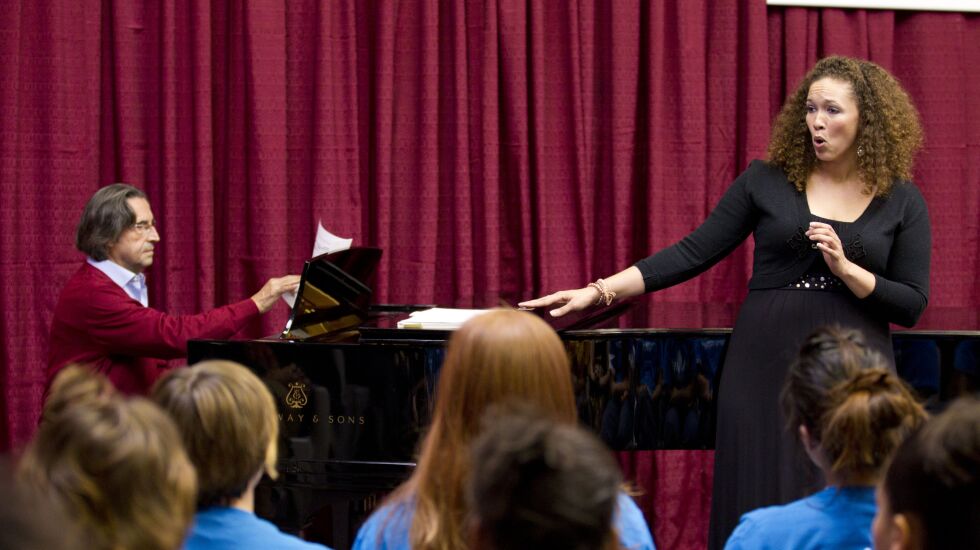
In addition, he regularly opened Orchestra Hall to senior citizens, under-privileged audiences and others for concert dress rehearsals. The access to rehearsals is something that conductors are leery of doing.
“This must be the future,” he said. “If we don’t go in this direction, making the public part of the process, then little by little we will lose the younger people, who will go in other directions.”
As for the next music director of the Chicago Symphony, Muti said he has carefully avoided being involved in any way with the orchestra’s search for his successor. But that doesn’t mean he doesn’t have opinions about what kind of person it should be.
“Many conductors, even famous ones, they can’t fill the halls,” he said. “You need someone who has a name, who is charismatic, who knows the repertoire and knows what it means to be a music director.”
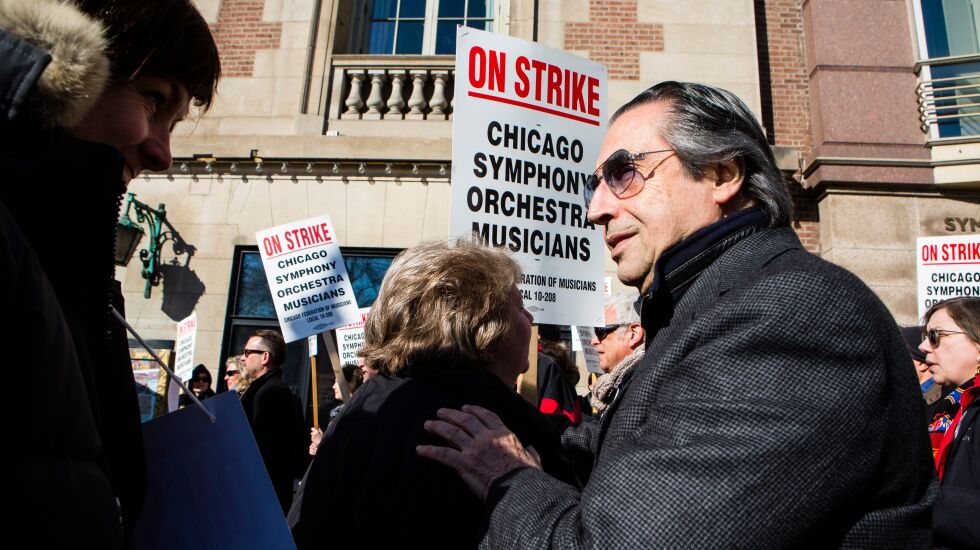
Although Muti made clear that he wants to do less traveling and have more time away from the stage, he plans to continue conducting regularly and has dates with orchestras like the Vienna Philharmonic well into the future. And, as noted, he plans to return regularly to the CSO but less frequently and without the demands of being of music director.
“Of course, I will come back because I love this orchestra,” he said. “I believe this is the best American orchestra, without any doubt.”

In the meantime, audiences still have several more chances to see the maestro in action this season, including his much-anticipated presentation June 23-25 of Beethoven’s great choral work, “Missa Solemnis,” which will be his last subscription concerts as music director.
“I love music and I love this orchestra,” Muti said. “In this respect, I feel quite in peace with myself. That doesn’t mean that I couldn’t have done better. Everybody could do better, but I leave the position of music director knowing that I have done my best.”







